Faculty
Emily Hencken Ritter
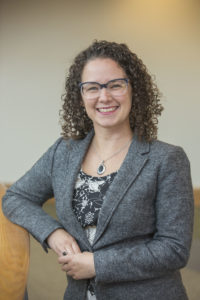
Emily Hencken Ritter is an Associate Professor and the Director of Graduate Studies in the Department of Political Science at Vanderbilt University, and she also serves as Director of the ROCCA Lab. She received her Ph.D. in political science from Emory University.
Professor Ritter’s research centers on the effects of international legal institutions on the strategic relationship between government repression and dissent activities, with particular attention to the methodological implications for causal inference that stem from strategic conflict behavior. Different projects contribute to scholarship on international human rights institutions, law, and practice; domestic conflict between national governments and groups from the population; international governance and legal institutions; institutional solutions to bargaining and cooperation problems, and political methodology. Game theory and quantitative statistical analysis are the primary methods she uses to approach inference.
Andrew J. Coe
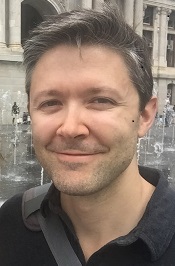 Andrew J. Coe is an Assistant Professor in the Department of Political Science at Vanderbilt University. Professor Coe received his Ph.D. in political science from Harvard University.
Andrew J. Coe is an Assistant Professor in the Department of Political Science at Vanderbilt University. Professor Coe received his Ph.D. in political science from Harvard University.
Professor Coe has three ongoing research projects. The first seeks to assemble existing data on different foreign policy tools states use to wage their disputes—such as imposing sanctions, competing in arms races, and using force—into a unified database in order to understand how states choose among these tools and which states engage in the most conflictual behavior overall. The second focuses on understanding how other countries react to a state being suspected of pursuing nuclear weapons, from preventive attacks, to individual deals to stop nuclear weapons programs, to strengthening the nonproliferation regime. The third project investigates whether terrorism works, not from the perspective of the terrorists themselves, but from that of the civilians or foreign governments that support a terrorist organization.
Brett V. Benson
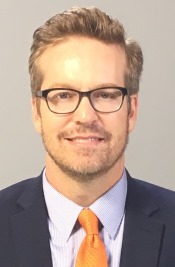
Brad V. Benson is an Associate Professor in the Department of Political Science and the Asian Studies Program at Vanderbilt University. He received his Ph.D. in political science from Duke University. Before coming to Vanderbilt, Professor Benson was a postdoctoral fellow at Princeton University in the Program for Quantitative and Analytical Political Science in 2010-2011. He was also a POSCO Visiting Fellow in residence at the East-West Center in Honolulu, HI in 2010.
Professor Benson’s research interests lie in the areas of international relations and Chinese politics and East Asian relations. He has worked on military alliances and interstate conflict and is the author of Constructing International Security: Alliances, Deterrence, and Moral Hazard (Cambridge University Press, 2012).
His current research focuses on the role of weapons systems in international politics. In particular, Professor Benson studies nuclear weapons and strategies countries use to reduce proliferation, the relationship between the sale of conventional weapons and military alliances, and the effects of small arms markets on intrastate conflicts.
Peter Bils
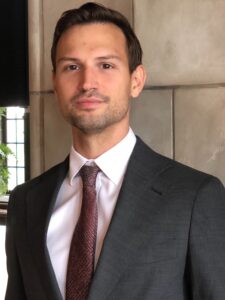
Peter Bils is an Assistant Professor in the Departments of Political Science and Economics at Vanderbilt University. He received his Ph.D. in political science from the University of Rochester.
His research analyzes game-theoretic models of bargaining in international conflict. This work underscores the importance of state preferences for understanding international and civil conflict. Ongoing work examines how differences in goals can affect communication and cooperation between states.
More broadly, he studies how political institutions shape incentives. In particular, he is interested in how to design institutions to improve policy outcomes. This work covers a number of topics, including international relations, bureaucratic politics, and elections.
Carwil Bjork-James
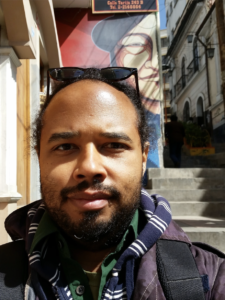
Carwil Bjork-James is an Assistant Professor in the Department of Anthropology at Vanderbilt University. He received his Ph.D. in cultural anthropology from City University of New York in 2013. His research agenda examines how subordinate social groups, particularly the urban poor and indigenous peoples, organize their own spaces and assertively use public spaces. It pursues a spatially aware ethnographic approach, interested in the practical and symbolic significance of urban places and indigenous territories, as well as a careful examination of the practices of social movements in sustained conflicts. Some broader issues of interest in his research are evolving ideas of collective rights (including the right to strike, and the rights of peasants and indigenous peoples), strategic and tactical questions in collective mass action, and the role of urban space in reproducing and challenging racial and state power.
Cassy Dorff
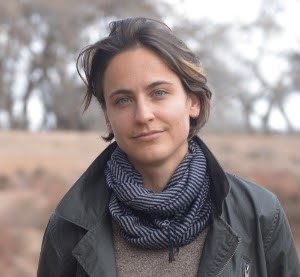 Cassy Dorff is an Assistant Professor in the Department of Political Science and a faculty affiliate of the Data Science Institute at Vanderbilt University. She received her Ph.D. in political science from Duke University.
Cassy Dorff is an Assistant Professor in the Department of Political Science and a faculty affiliate of the Data Science Institute at Vanderbilt University. She received her Ph.D. in political science from Duke University.
Professor Dorff’s research uncovers patterns of how people engage with and respond to political conflict. Her work analyzes how networks and interdependence shape individual and group-level behaviors during and after episodes of violence. Current projects focus on civilian victimization, journalism in conflict zones, network analysis of conflict, and conflict prediction and forecasting using event data.
Brenton Kenkel
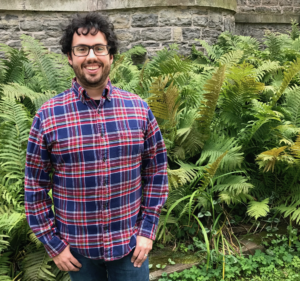
Brenton Kenkel is an Assistant Professor in the Department of Political Science at Vanderbilt University. He received his Ph.D. in political science from the University of Rochester.
Most of his ongoing research focuses on two questions. First, how do states gain and maintain power in the face of internal and external challenges? Professor Kenkel is particularly interested in the economic sources of power and the strategic interactions that take place when there are multiple challengers for authority. The second research question he focuses on is: under what circumstances can states credibly exchange information through diplomacy?
Jennifer M. Larson
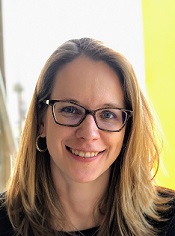 Jennifer M. Larson is an Associate Professor in the Department of Political Science at Vanderbilt University. She received her Ph.D. in political science from Harvard University.
Jennifer M. Larson is an Associate Professor in the Department of Political Science at Vanderbilt University. She received her Ph.D. in political science from Harvard University.
Professor Larson’s research is on social networks. The social ties that connect people to each other serve lots of roles. In her research, she focus on the informational role of ties in social networks: people tend to share information with each other, and often that information is gossip about other people. Just how the social ties are arranged in the social network– who is connected to whom– can affect how informed people are, possibly about each other. This has consequences for how well groups can coordinate tasks and enforce norms.
In Professor Larson’s theoretical research, she combines network analysis and game theory to identify how the arrangement of ties in a network affects group outcomes like self-governance in fledgling towns, cooperation among neighboring ethnic groups, and the formation of viable rebel groups. In her empirical research, Professor Larson aims to establish foundational details about real-world networks, such as the structure and consequences of ethnic networks, the nature of networks among protesters, and the correspondence between online and offline social networks. In her methodological research, she determines best practices for networks research design and sampling procedures for the further empirical study of networks of consequence to political science.
Peter Schram
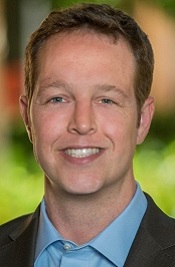 Peter Schram is an Assistant Professor of Political Science in the Department of Political Science at Vanderbilt University. He received his Ph.D. from Stanford University Graduate School of Business.
Peter Schram is an Assistant Professor of Political Science in the Department of Political Science at Vanderbilt University. He received his Ph.D. from Stanford University Graduate School of Business.
Before starting at Vanderbilt, Professor Schram worked as a research specialist for UCSD’s Cross-Domain Deterrence project, where he adapted existing and developing new game theory models of deterrence and grey zone conflict.
As a ROCCA faculty member, Professor Schram’s research uses empirical and microeconomic methods to study counterinsurgency, economic development, and grey zone conflict. His research focuses on three central questions: Why do individuals support militant groups? How do insurgent groups organize and operate? And how do features of the global community and technology influence the characteristics of conflict? He also teaches both undergraduates and graduate students with a focus on terrorism, intrastate conflict, and statistics for Political Science research.
Brad Smith
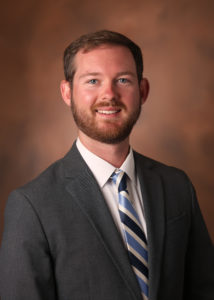
Brad Smith is an Assistant Professor in the Department of Political Science at Vanderbilt University. He received his Ph.D. in political science from the University of Rochester.
In his research, Professor Smith focuses on questions at the intersection of conflict and cooperation in the international system. More specifically, he utilizes both formal theory and statistical methods to analyze military cooperation in the international system. Professor Smith is interested in both the conditions that lead to military cooperation, as well as the influence of realized military cooperation on international conflict outcomes.
His main research project analyzes the role of multilateralism in international conflict processes. In particular, Professor Smith is interested in how states manage the dual problem posed by multilateral conflict: managing interactions with both enemies and allies, with incentives in one sphere influencing those in the other. Additionally, he is involved in a number of ongoing projects studying nuclear proliferation, the influence of leaders on international politics, and crisis diplomacy.
James Bisbee
James Bisbee is an Assistant Professor in the Department of Political Science and a faculty affiliate of the Data Science Institute at Vanderbilt University.Previously, he was a postdoctoral fellow at NYU’s Center for Social Media and Politics and at Princeton’s Niehaus Center for Globalization and Governance.
He studies how public opinions and behaviors are influenced by information, ranging from local unemployment to elite cues, using all manner of empirical evidence. His research has been published in peer reviewed journals, including the American Political Science Review, the Journal of Politics, the Journal of Labor Economics, and International Organization, among others.
